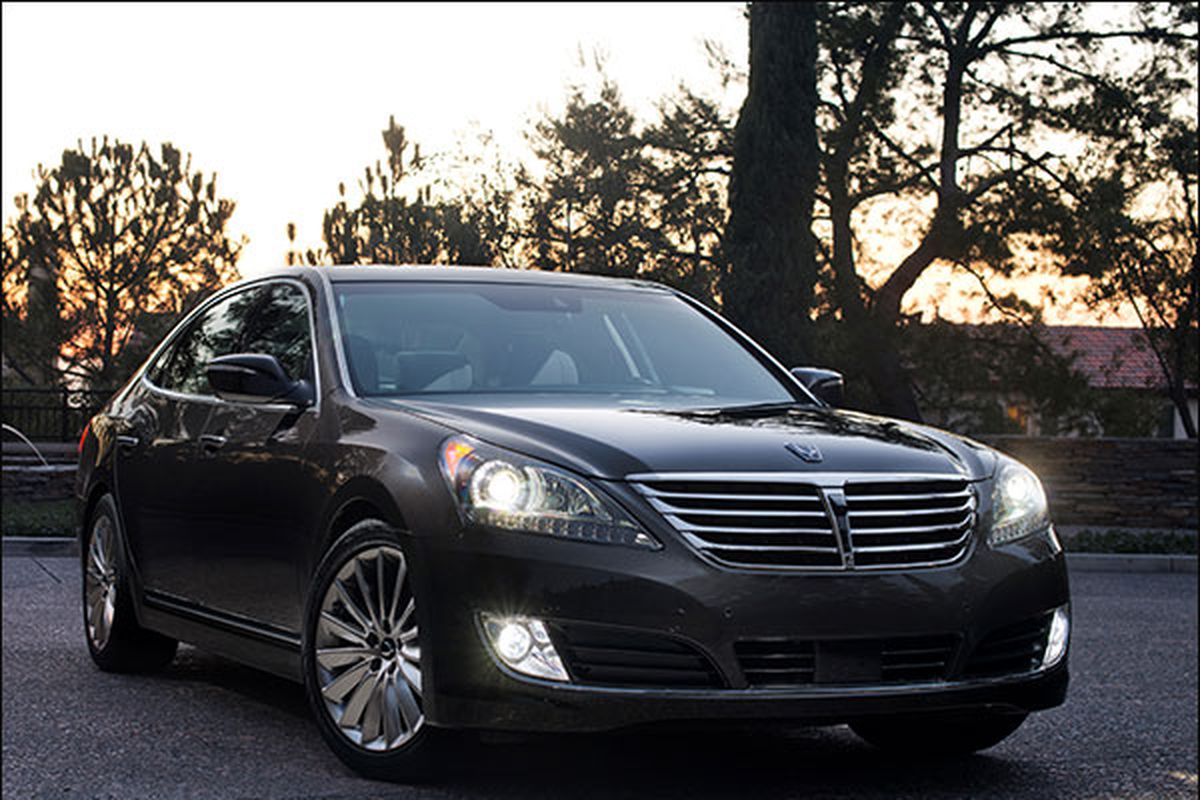Hyundai Equus: Aiming for the top

Quickly, now: Name the first five luxury sedans that spring to mind.
Done? Good. I’m guessing the Hyundai Equus was not among them. I’ll also guess that in five year’s time, it could well be.
The Equus is a $62,000, full-size, rear-drive sedan, with its sights set on the industry’s best. It won’t be easy, but Hyundai can never be counted out.
Following a disastrous U.S. debut, in which it replaced Yugo as the punchline in a million lousy-car jokes, the Korean giant roared back to become one of three makes whose sales grew during the recession.
Hyundai introduced the Equus to U.S. buyers in 2011 and has given it a 2014 model-year refresh.
Exterior styling is updated front and rear and the instrument panel and controls are all-new. The suspension has been modified and blind-spot and rear cross-traffic alert systems join the standard-features list.
That list also includes such exotica as heated and ventilated front seats, heated power-reclining rear seats, with rear-seat climate controls, and a power rear sunshade.
A 17-speaker Lexicon audio system has discrete surround-sound capability and includes satellite radio, HD radio, a six-CD/DVD changer, an auxiliary audio jack and an iPod/USB audio interface.
The system is so good Hyundai doesn’t bother to offer an upgrade.
This is the Hyundai game plan, played out a higher level than usual. As large as its competitors -- and stronger than most in their base forms -- the Equus lays on the tech and goes heavy on standard features, while undercutting the competition by several thousands of dollars.
Hyundai pitches the Equus as a sport-luxury vehicle, with the clear focus on luxury. In many ways, the car reminiscent of the first Lexus LS -- it’s quiet, comfortable and well behaved, but perhaps gentle to a fault.
Its two-mode air suspension is updated this year to produce a firmer ride in the Sport setting and a softer one in Comfort. And while the Equus rides agreeably over the roughest of surfaces, it never holds out the promise of a little back-roads entertainment.
Similarly, while the seats are large and soft, they may prove to be too soft for comfortable long-distance driving.
Equus is available in two trims, Signature and Ultimate. Both employ a 9.2-inch navigation display and most functionality is controlled by way of a console-mounted rotary knob.
Traditionally the master of tech, Hyundai comes up short with this nav system. Though its rotary controller is preferable to a touchscreen, it has frustrating inconsistencies. Online, some owners say they prefer handheld GPS devices to the Equus’s system.
While other makers have invested their big cars with turbocharged sixes, the Equus relies on good, old eight-cylinder power. Its 5.0-liter V-8 makes 429 horsepower and is mated to an eight-speed automatic. Zero-to-60 comes up in a mid-pack 5.7 seconds but efficiency suffers. The Equus is EPA-rated at 15 mpg city/23 mpg highway and 18 mpg combined.
Over time, Hyundai is certain to build on the Equus’s strengths and rectify its weaknesses. As it sits, Hyundai’s flagship will make value-oriented buyers a happy bunch indeed.
Don Adair is a Spokane-based freelance writer. Contact him at don@dadair.com.
2014 Hyundai Equus Signature
Vehicle base price: $61,000
Trim level base price: $61,000
As tested: $61,920
Optional equipment: Our Equus Signature tester included no options.
EPA ratings: 15 city/23 highway
Regular unleaded fuel specified
